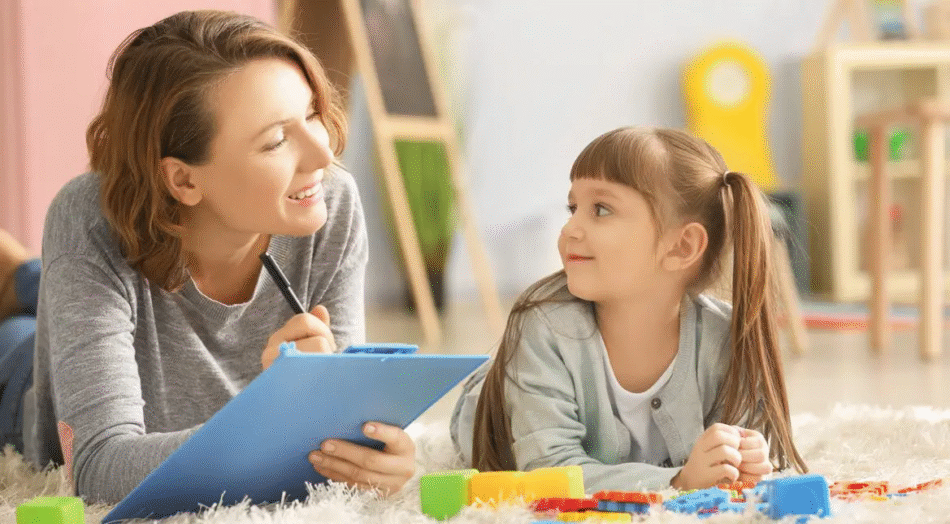Child & adolescent psychiatry focuses on the mental health and emotional well-being of young individuals. It addresses challenges that children and teenagers may face, including anxiety, depression, behavioral issues, and developmental disorders. Specialists in this field use evidence-based approaches to support growth, learning, and emotional regulation.
The Importance of Early Intervention
Early identification of mental health challenges can significantly improve a Child & Adolescent Psychiatry Dubai overall development. Recognizing symptoms such as persistent sadness, withdrawal, or difficulty concentrating allows for timely support. Early intervention helps children develop coping strategies, enhances resilience, and fosters a positive outlook toward life and learning.
Common Mental Health Challenges in Youth
Children and adolescents may experience a range of mental health issues. Anxiety and stress-related conditions are common, affecting daily functioning and academic performance. Mood disorders, including depression, can impact social interactions and overall well-being. Behavioral challenges, such as impulsivity or aggression, may require specialized strategies for guidance and support.
Therapeutic Approaches in Child & Adolescent Psychiatry
Psychiatric care for young individuals involves various therapeutic methods. Cognitive-behavioral therapy focuses on modifying negative thought patterns and improving coping mechanisms. Play therapy allows children to express emotions and experiences in a safe and supportive environment. Family therapy encourages communication and strengthens family bonds to support overall mental health.
Benefits of Specialized Psychiatric Care
Specialized care offers tailored strategies that address the unique needs of children and adolescents. It helps in understanding the root causes of emotional or behavioral challenges. Individualized treatment plans promote emotional stability, enhance social skills, and support academic and personal growth.
Recognizing Signs That Require Support
Awareness of behavioral and emotional changes is crucial. Signs such as sudden mood swings, withdrawal from friends or activities, sleep disturbances, or changes in eating habits may indicate underlying challenges. Attention difficulties, frequent frustration, or unexplained physical complaints can also signal the need for professional support.
Role of Family in Mental Health
Family involvement plays a vital role in the mental well-being of young individuals. Supportive and understanding environments foster confidence and resilience. Open communication between children and caregivers helps identify challenges early and encourages participation in therapeutic activities.
Creating a Supportive Environment at Home
A nurturing home environment contributes to positive mental health. Establishing routines, encouraging expression of feelings, and promoting healthy social interactions are essential. Active listening and validating emotions help children feel heard and understood. Encouraging hobbies and activities that boost self-esteem fosters overall growth.
School Collaboration and Mental Health
Collaboration between families and educational institutions enhances mental health support. Teachers and school counselors can provide insights into academic and social behavior. Coordinated efforts ensure early detection of challenges and implementation of strategies that aid learning and emotional development.
Building Resilience in Children and Adolescents
Resilience is the ability to adapt and thrive in the face of challenges. Psychiatric care supports resilience by teaching coping strategies, problem-solving skills, and emotional regulation. Encouraging perseverance and celebrating achievements, no matter how small, strengthens confidence and self-worth.
Promoting Emotional Intelligence
Emotional intelligence involves recognizing, understanding, and managing emotions effectively. Children and adolescents benefit from guidance in expressing feelings, empathizing with others, and developing social skills. Enhanced emotional intelligence contributes to healthier relationships and improved mental well-being.
Integrating Social Skills Development
Social skills development is critical for positive interactions with peers and adults. Structured activities and therapy sessions focus on communication, cooperation, and conflict resolution. Improved social competence reduces feelings of isolation and enhances overall confidence in social settings.
Monitoring Progress and Growth
Regular monitoring and evaluation of mental health progress ensure that interventions are effective. Behavioral changes, academic performance, and emotional stability are observed to assess the impact of therapeutic strategies. Continuous feedback and adjustments allow for optimal outcomes.
Promoting Healthy Coping Strategies
Children and adolescents learn to manage stress and emotional challenges through structured coping strategies. Techniques such as relaxation exercises, mindfulness, and structured problem-solving help navigate daily challenges. Developing these skills early supports long-term mental health and adaptability.
Encouraging Positive Self-Identity
A positive self-identity is essential for emotional well-being. Psychiatric care emphasizes self-awareness, self-acceptance, and confidence-building. Encouraging strengths, celebrating achievements, and nurturing individuality help children develop a strong and positive sense of self.
Enhancing Peer Relationships
Healthy peer relationships contribute to emotional growth and social learning. Psychiatric support assists children and adolescents in forming meaningful friendships, resolving conflicts, and navigating social challenges. Positive interactions with peers reinforce self-esteem and emotional resilience.
Addressing Academic Challenges
Mental health influences academic performance. Emotional difficulties, attention challenges, or behavioral issues can impact learning. Psychiatric care provides strategies to improve focus, motivation, and problem-solving skills, helping children succeed academically while maintaining emotional balance.
FAQs
What is child and adolescent psychiatry?
Child & Adolescent Psychiatry in Dubai is a specialized field focusing on the emotional, behavioral, and mental health needs of young individuals. It involves assessment, diagnosis, and therapeutic intervention to support overall well-being.
How does early intervention help?
Early intervention identifies challenges before they escalate, providing timely strategies to improve coping, emotional regulation, and overall development. It reduces the risk of long-term mental health issues.
What types of therapy are used for children and adolescents?
Common therapeutic approaches include cognitive-behavioral therapy, play therapy, and family therapy. Each method addresses emotional and behavioral needs through tailored strategies.
How can families support mental health at home?
Families can support mental health by maintaining open communication, validating emotions, establishing routines, encouraging hobbies, and fostering a supportive environment for growth.







